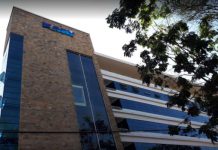AfricaPress-Kenya: A raft of regulations that target manufacturers in the country might be muffling development of small and medium enterprises, Kenya Association of Manufacturers (KAM) believes.
Overt bureaucracy, the lobby for manufacturers observes, is not helping as many entrepreneurs find themselves pushed out of business.
“Procedures required to obtain a construction permit increased from nine to 16 because of new requirements to submit a survey plan and register the project with the National Construction Authority,” says KAM Chief Executive Phylis Wakiaga.
“The time required to obtain a construction permit increased by over 25 per cent from 125 days (2014) to 159 days (2020).”
Overlapping charges, which see some manufacturers pay more than twice for the same service to different authorities, has significantly increased the cost of doing business. This, in turn, means that a significant cost is passed onto the consumer.
“There are various overlapping charges and levies by various quasi institutions. Some of these are water and sewerage services, effluent discharge, movement of goods taxes and levies at the national and county levels, dust measurements, noise survey, among others,” says Ms Wakiaga.
“Review and alignment of overlapping mandates and roles will reduce the cost of doing business for the manufacturing sector by 28.9 per cent.
The manufacturer’s lobby also feels that the regulations that are in place to control inter-county distribution is punitive and derails the country’s bid at achieving its economic potential.
“Movement of goods across counties is exorbitantly regulated. Distribution licenses are expensive, vary across counties and are mandatory before goods are allowed to transit,” reads the KAM Regulatory Audit Survey of 2020.
“This contravenes Article 209 (5) of the constitution which requires that taxation and other revenue-raising powers of a county shall not be exercised in a way that prejudices national economic policies, economic activities across county boundaries or the national mobility of goods, services, capital or labour.”
The processes of business and property registration has been regarded as a hindrance to many Kenyans who want to, and are capable of, owning property. “On average, starting a company requires seven procedures, takes 23 days and costs 20 per cent of Kenya’s income per capita. The process is less efficient compared with the global Doing Business 2019 average,” KAM says.
Construction is even more bureaucratic.
“Dealing with construction permits requires 17 procedures, takes 108 days and costs 3.8 per cent of the warehouse value, on average, about two (2) months faster than the average for Sub-Saharan Africa (162 days). However, the number of procedures is three times the global average measured by Doing Business. The number of steps ranges from 14 in Kiambu (Thika) to 18 in Isiolo, Kakamega and Machakos,” the survey notes.
“The time to deal with construction permits varies from 72 days in Busia (Malaba) to more than twice as long in Kiambu (Thika) and Nairobi.”
Registering property takes on average nine procedures, 58 days and costs 6.54 per cent of property value, KAM says. The cost is in par with South Africa and lower than in Mauritius or the regional average for Sub-Saharan Africa.
Across Kenya, property registration requires three times as many procedures as in Rwanda and requires about the same number of days as in Sub-Saharan Africa (57.5 days) which is nearly five times the time required in Botswana (12 days).
The lobby is asking for simplification of the procedures for approvals of construction and acquisition of property, which will, in turn, spur economic growth. ?






